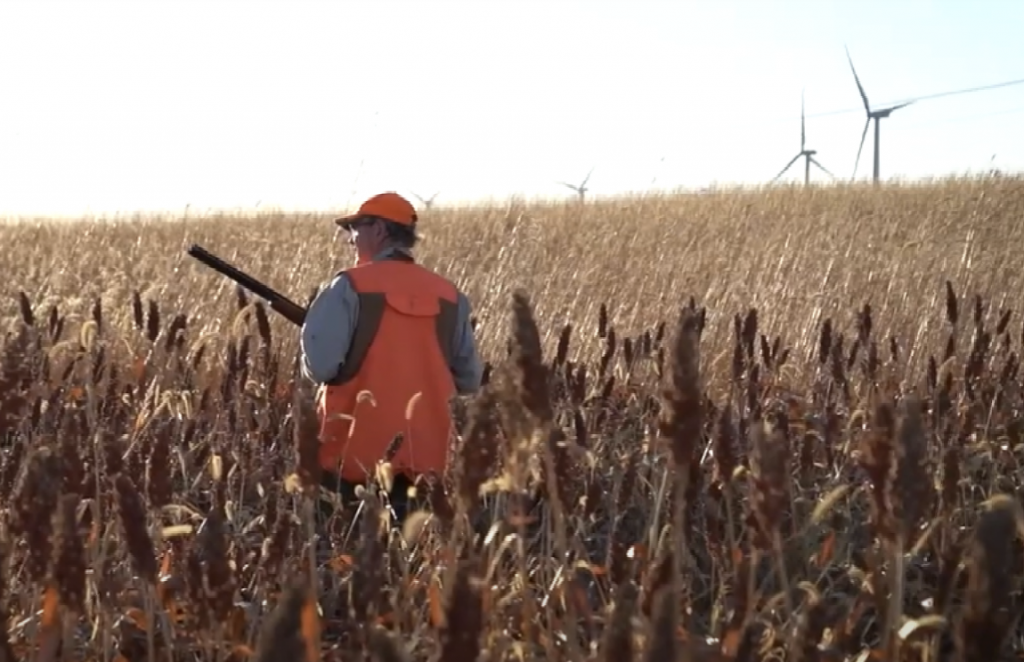- September 1, 2023
Kansas Conservation Series: Wildlife Conservation and Working Lands
Montezuma, KS – U.S. Senator Roger Marshall, M.D. is continuing his conservation series highlighting Kansans’ voluntary efforts to take better care of the environment. Stories will be released throughout the 2023 Farm Bill legislative process.
“While we hold hearings for the 2023 Farm Bill, I want to highlight how hard Kansans work every day to protect our environment and conserve precious resources that our Ag economy needs to thrive. Kansas farmers, ranchers, growers, and producers are finding unique and practical ways to preserve our land and protect our water and air. Their efforts are worthy of everyone’s praise,” said Senator Marshall.
This week, we’re highlighting Garrett Love’s farms and his family in southwest Kansas who currently serves on the National Sorghum Producers (NSP) Board. The Love family believes in growing more with less, and utilizes grain sorghum as a way to produce a quality crop with less inputs and water. Sorghum, or milo as some may refer to it as, also builds ground residue. In turn, the residue from sorghum stalks promotes soil health, and serves as a perfect habitat for upland birds like pheasants and quail.
In a partnership with National Sorghum Producers and Pheasants Forever (PF), Garrett and his family share their agricultural data with conservation experts to find ways their land can be maximized for wildlife habitats. Maps from data gathered in the combine while out in the field help them make informed decisions on how to improve moisture flow or planting decisions, which ultimately helps increase yields, as well as wildlife population.
In pivot corners, which are traditionally planted to dryland crops, PF and the Loves have planted 10 acres of warm season grasses to serve as ground cover and forage sources for game birds. The seed from the grasses is nutritious, and the stubble enriches biomass above and below the soil.
The efforts put forth by Garrett, NSP, and PF, serve as a perfect example of producers and partnerships promoting wildlife populations. My role as a member of Congress is to uplift efforts such as these, not control how they are carried out. I look forward to more partnerships like these being established by Kansas farmers and ranchers who carry out their title as the original conservationists on a daily basis.

